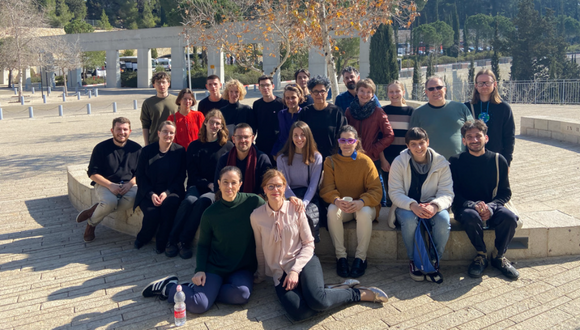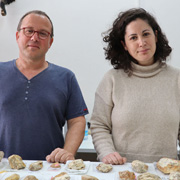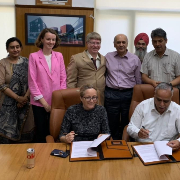Transcending Academic and Geographic Boundaries
Goethe University Frankfurt students work with TAU students to study German-Jewish Thought.
When Ilit Ferber, a professor of philosophy at Tel Aviv University (TAU), first worked with her peers at Goethe University Frankfurt (GU) to create a joint international course, the intent was not only to create a transnational classroom, but an interdisciplinary one, too.
“We wanted to imagine the perfect academic community,” recalls Ferber, regarding the course ‘Language and Trauma in German-Jewish Thought,’ which she is co-teaching with GU’s Professor Judith Kasper and Dr. Caroline Sauter. “We wanted to make sure it wasn’t a competitive atmosphere, but one of listening and responding, of asking questions, of conversation.”
The Transnational, Interdisciplinary Course Experience
Ferber has just wrapped up the first iteration of the course and is preparing to teach it with her GU peers for a second time next semester. The course combines graduate students in philosophy at TAU with graduate students in comparative literature from GU; together students read the same texts and analyze them, with each bringing their own cultural and disciplinary understanding to the conversation. To allow each university to participate, the majority of the course is held over Zoom. Students are divided into working groups with members from both disciplines and universities. According to students, this has resulted in some uniquely productive conversations.
“In our conversations, we were always zooming in and out … the comparative literature students were always zooming in on the text, and then with the philosophy students we’re zooming out,” recalls Daniel Paldi, an MA student from TAU, who participated in the first course session. “It was like a dance.”
For Jonas Kunzler Moreira Dornelles, a comparative literature PhD from Frankfurt by way of Brazil, the course felt like a doubly immersive experience: “Being in the course, having discussions on trauma, I couldn’t help but connect the conversations to Brazil’s own history of colonialism, racism and collective trauma.”
Continuing the Conversation in Tel Aviv
Last semester’s course culminated in a one-week in-person intensive study in Tel Aviv, where the working groups presented what they had worked on during the semester. Excepting for a visit to Yad Vashem and Jerusalem, the students spent full days immersed in class discussion.
“It worked amazingly,” reflects Ferber, “We found out on the last day, just how much the students met after hours, too … at a bar or in a department, to continue the conversation and speak about the literature; in fact, they’ve already decided that they’ll do an online reading group together independently.”
For the second iteration of the course, participating students from TAU will travel to Frankfurt for a week. And while Ferber admits that offering the joint course requires a greater time commitment than usual, she says the experience is worth it.
“It gives our students a chance to visit and form relationships with professors abroad, to present and discuss academic work in English, and to create connections that will likely last a long time,” reflects Ferber. “For those of my students who want to continue with an academic life, I feel that I’m giving them the best tools for their future.”
TAU’s Collaborative International Course Grant
The Lowy International School has published a call for proposals for collaborative international courses to be taught in the 2023-24 academic year; TAU instructors can receive a $3,000 grant to support course creating and teaching.
To learn more about the grant program, read our call for proposals.
Instructors can apply for the grant here.





